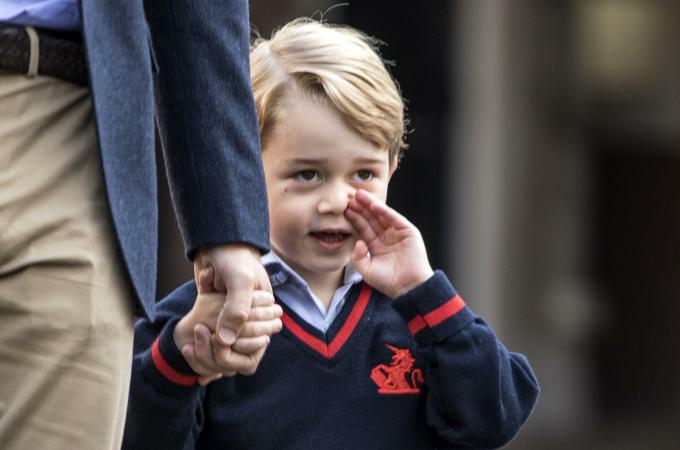An education for kindness
Like many, I enjoyed watching the video clips of Prince George starting school. I am taken, though, with the choice of school by his parents, one that departs from prior royal practices and entails a longer drive. You see, the school was chosen for its primary focus on kindness encoded in its most important rule: "Be kind."
That choice seems to echo with many parents in the U.S. In a report titled "The Children We Mean to Raise" by the Making Caring Common project at Harvard University, 96 percent of parents surveyed indicate that the moral character of their children is very important or essential.
Yet the good news seems to break down here as three out of four students believe that "my parents are prouder if I get good grades in my classes than if I'm a caring community member." Manifested in actions, the message that achievements matter most is borne out by more than 50 percent of high school students who admitted to academic cheating and a view of the "real world" that "successful people do what they have to do to win, even if others consider it cheating."
What a disconnect! Did we as parents send a message for compassion but leave it at that? Or did we embrace a different priority that could not escape detection by our children?
As parents in a highly competitive culture, it is natural to want to do everything possible within our power, from Baby Einstein videos to special lessons, so that our children are not left behind. At the same time, most parents I know do not want to trade character for achievements, blunt the exercise of compassion for self-improvement, or encourage cruel behavior as a price for success.
It is likely that lost in the daily grind is the mindfulness that continuously prompts the need for kindness, calls out and reinforces the daily examples within family life, models the behavior that puts compassion into action, and seeks out opportunities for children to serve in their communities. Mobile devices and other forms of entertainment hijack our children's time for reading, particularly nonfiction, which research has shown can cultivate empathy and broaden our ability to put ourselves in the shoes of others.
We could also encourage our children to participate in something out of their areas of strength not to compete or win, but just for the fun of it. Busy lives also squeeze out interactions with others, including relatives, neighbors and folks from the community.
Such engagements are the grist that build relationships and bonds that develop affection between people. When children are on the receiving end, they learn kindness and generosity in the most profound and enduring way.
There is nothing wrong with helping our kids excel and advance. But we must watch out for the ways by which we elevate this responsibility beyond its rightful proportions.
With good intention, we can render our kids' performance, which is often insidiously yoked to rankings and ratings, the singular family priority that pushes out time for each other, for friends, for decompression, for fun and for worship.
Resulting in destructive personal and group dynamics, performance can become the currency by which children calibrate their worth or think they need to earn love from their parents.
For Thomas's Battersea School, its approach to forming kindness (and incidentally strong academic performance also) is "Enjoyment, Learning and Achievement," through a curriculum that includes art, music, ballet, French, drama and physical education. Perhaps parents can exhale now and read a self-help book to recover fun as a way to cultivate kind and able children!
- Woo is distinguished president's fellow for global development at Purdue University and served as the CEO and president of Catholic Relief Services from 2012 to 2016.



















